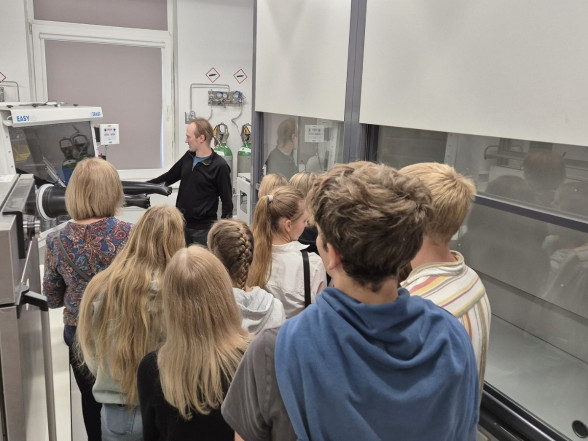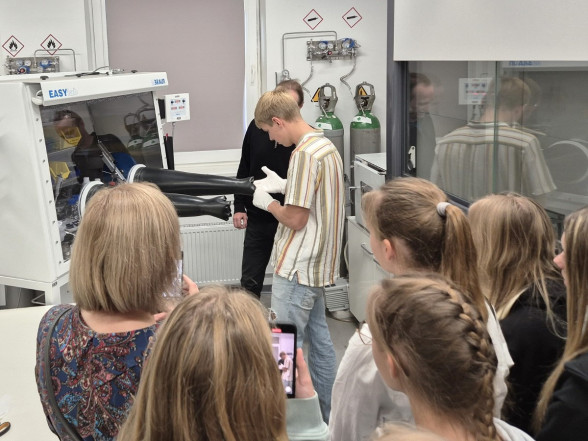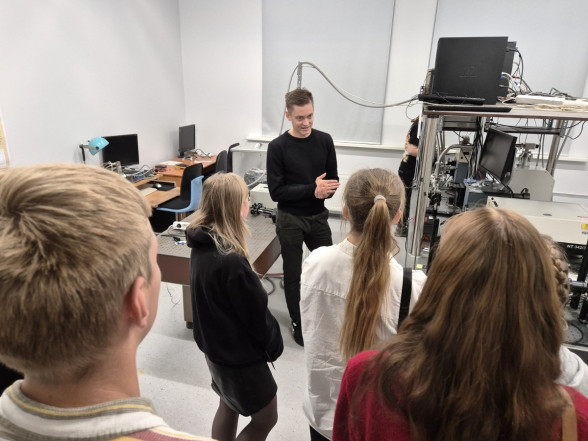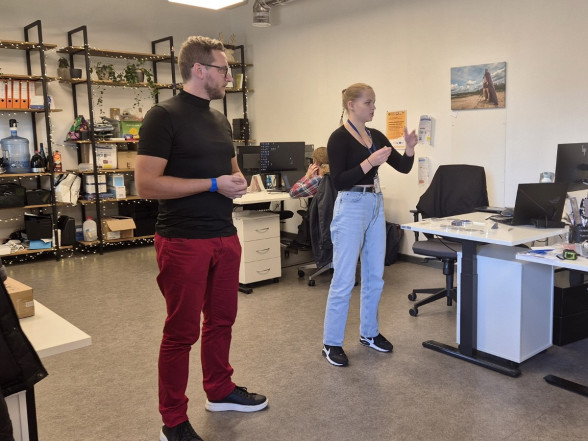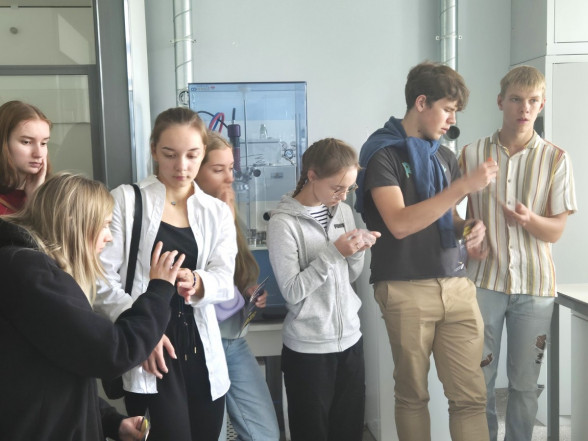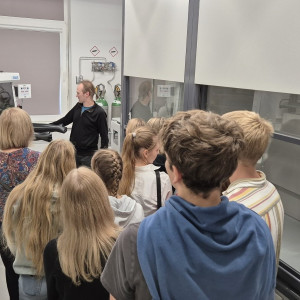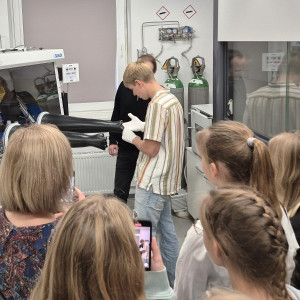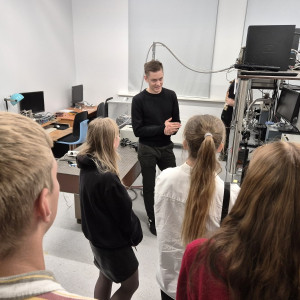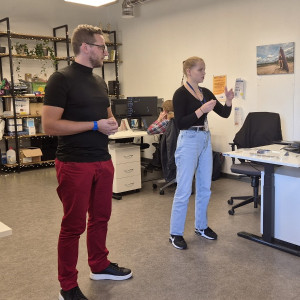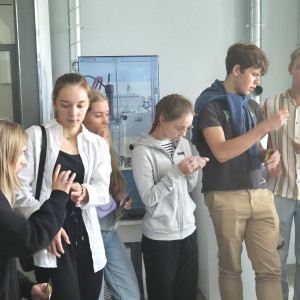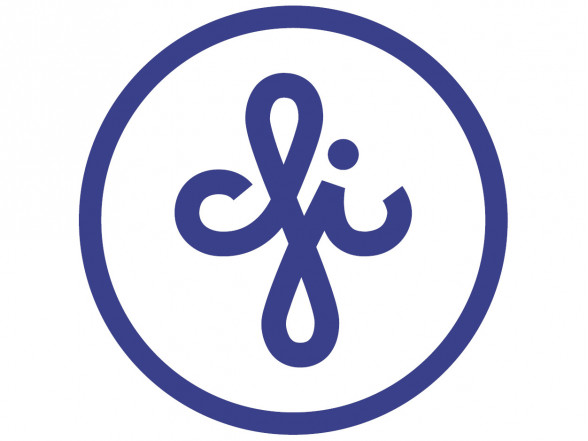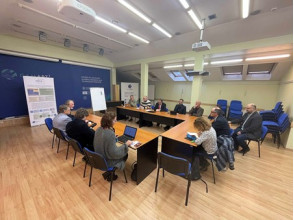The ISSP UL has a longstanding tradition of hosting engaging tours for school students, allowing them to witness scientific endeavors and cutting-edge equipment firsthand. These tours are designed to highlight physics’s practical applications and encourage interest in scientific careers.
On October 11, a group of Līvāni secondary school No. 1 students visited the ISSP UL to learn about the institute’s diverse fields of activity, notable scientific accomplishments, and research projects.
During the students’ visit, leading researcher and head of the Laboratory of Optical Materials, Aleksejs Zolotarjovs, introduced guests to the profession of a researcher and laboratory assistant of the Laboratory of Computer Modeling of Electronic Structure of Solids, Igors Mihailovs, demonstrated the Chemical Clock experiment. Following the presentation, the students toured several laboratories. Their first stop was the Laboratory of Spectroscopy, one of the largest laboratories of the ISSP UL, where they learned about research methods involving optical, magnetic, and electron spectroscopy. The tour continued at the Laboratory of Optical Materials, where they gained insights into studying optical phenomena in various materials.
The Energy Materials Laboratory captured the students’ interest with its research on topical issues such as energy storage, climate neutrality, and sustainable solutions. Lastly, the Micro and Nanodevices Laboratory showcased microdevices and structures integral to research and development in new materials, biological processes, and physical phenomena.
The visit offered the students valuable insights into the hands-on aspects of physics and scientific research and helped them to develop a greater appreciation for the institute’s work and the diverse career opportunities in physics.
Students interested in further involvement with ISSP UL were invited to participate in upcoming events like the Latvian Physics Festival. They were also encouraged to consider applying for next year’s Solar Cup competition and Job Shadow Day 2025, which allows students to observe physicists in their work environment.
